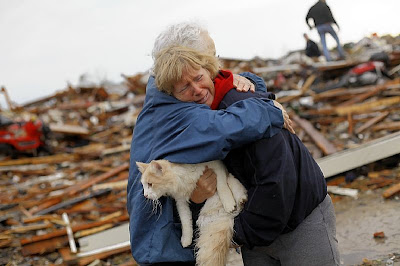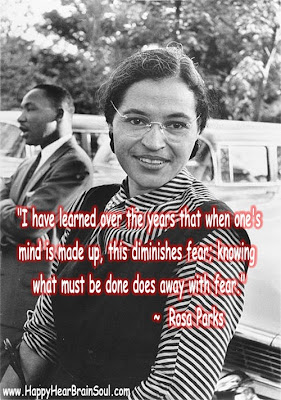Lesson #8: Travel Doesn't Have to be an Exclusive Luxury
"Certainly, travel is more than the seeing of sights; it is a change that goes on, deep and permanent, in the ideas of living." – Miriam Beard
So I have to go on a little rant here that is inspired by a friend I know. We may be opposite in so many ways, but we also have many things in common, hence our ability to sustain a friendship. And I have learned that through our extreme differences, I have been able to grow as a person. If you are in a vacuum of thoughts and beliefs and actions that are similar or the same as your own, you aren’t able to grow, you continue to bolster your own shared opinion without actually having to think about it. Whereas, with someone who is constantly differing in opinions and actions, you are challenged to either defend your beliefs, or change. In doing so you must take a good, introspective look at the ins and outs, and reasons and emotions that shape these thoughts and attitudes you hold so dear.
So what does this have to do with travel??
Well, anyone who knows me also knows that I love to travel. I spent most of my formative years traveling and in fact many of my early twenties were spent bumming around the world, poor but happy , because I was seeing and experiencing so many new things and meeting so many new people. My views and opinions about everything were changing and then changing again and constantly being reshaped by my growing and evolving perspective.
My friend often views travel differently. Whenever I bring up wanting to take a trip or ideas about travel in general, this friend becomes flustered and bothered. They claim it as a frivolous expense and one that people can do when they are extremely wealthy, or retired, but not right now. They go on to explain that their family didn’t do a lot of traveling growing up, that’s not how they were raised, and that they didn’t have money for extravagant things like that. However, this friend has no problem spending $600 on a nice pair of shoes (because they are a quality pair of shoes and will be worn for a long time), or a nice pair of jeans, or going out to nice restaurants or bars on the weekend. I, in turn, balk at these expenses and call them just as frivolous, then my friend looks at me like I’m the crazy one now.
When I tell anyone that I grew to love travel because I was able to travel as a child, I get many responses like, “Oh that must’ve been nice having all that money to travel. Seems nice.” And they quickly dismiss it as something wealthy people do just because they have the money to do it. Well, for most of my childhood we were not wealthy and we still did A LOT of traveling. But, many of our travels were like this:
Let’s load up the Honda with two tents, sleeping bags, a cooler and whatever else can fit and drive to Ohio (from Texas) where we can stay with our uncle. So, along the way we stopped to camp. We stopped at road side stands and stores to get food for picnics. We pulled over for historical markers. We went on back road detours to find quirky museum my dad had read about. We met interesting people that talked funny (they call it “Pop”!) and after 10 days of traveling like this, to and from Ohio, we had ourselves quite an adventure.
I doubt my mom would call it a luxury vacation (I’m sure she missed her blow dryer, coffee pot and hot shower while we camped). But it was important for my dad to take us on trips like this while growing up. In doing so, it has made me into the curious, intellectually stimulated, open-minded, free-thinking, world loving individual that I am today. And it has made me truly appreciative of what travel gives to us.
Now, in saying that, I must also point out that there are differences in types of travel, and this will help to delineate a big difference between me and my friend. I think all travel, as mentioned before, is good for the soul.
However, I think some types of travel offer you more internal reward than others. Here is my thought:
So, my friend probably went on a few vacations growing up; they've mentioned a couple resort type vacations. And there is nothing wrong with those- we also went on those types of vacations. But I don’t think you’re going to be opened to learning things, seeing new perspectives, broadening your horizons, given mental clarity, appreciating the beauty and simplicity of nature on a trip to the casinos or an all-inclusive in Cancun. It is fun though, don't get me wrong, and isn't a bad thing to do! Maybe that’s the difference that we’re experiencing. Their idea of a vacation is an excuse to get away from work or school or life and do nothing related to work, school, etc. - just to let out excess stress and decompress. This is needed, I think, to stay sane and continue to be productive in life. Reducing stress is good for overall health and happiness so I’m not saying all travel needs to be for the greater purpose of expanding your horizons and becoming a more well-rounded person. But, I do think this other type of travel, the kind that changes you and gives you reason to think and believe differently, is important for everyone to experience at some point in their lives. That’s why study abroad is so popular at University. I know some think of it as a chance to have an easier course-load and goof off under the guise of “studying” in a foreign country. And, yeah, when I studied abroad my coursework was a lot easier so I spent less time in the library. But the things I learned during those three semesters were far more valuable to me and have enriched my life in ways I can’t enumerate.
Maybe that’s the issue. I have a hard time really explaining how this one type of travel - one that involves cultural immersion and personal expansion, going someplace that challenges you or introduces you to something you’ve never experienced before - benefits you more than just taking off work and paying to go somewhere else to blow off steam by a pool or in a casino. How this type of travel is essential to building your character and giving you a life well lived. Some may disagree and add that we are spoiled in thinking that traveling the world is going to somehow make us better people. I agree with that too – perhaps traveling to the wrong side of the tracks or to some of the ethnic neighborhoods in your city would be just as beneficial to opening one’s eyes as would a round-the-world ticket. And, if you can manage it, why not a bit of both?
I think seeking knowledge and always yearning for a new perspective is part of growing and fulfilling the destiny of becoming your greatest self.
So, that being said, let’s plan that next vacation.

- Pack up the car! We're going on an adventure!

















